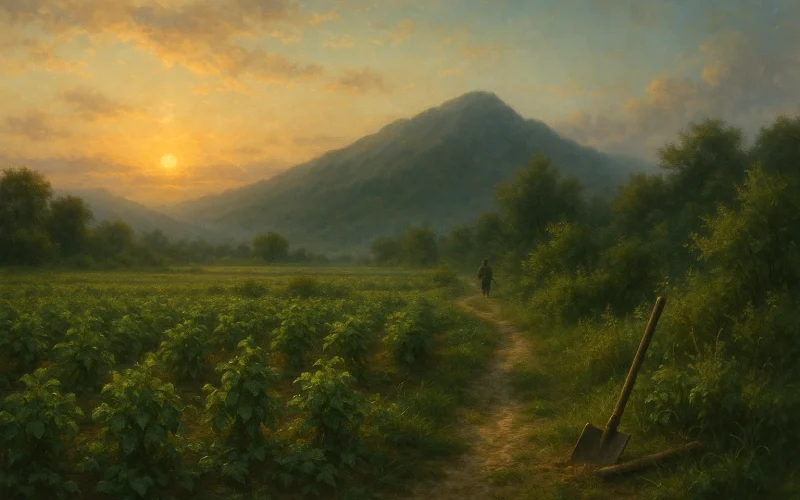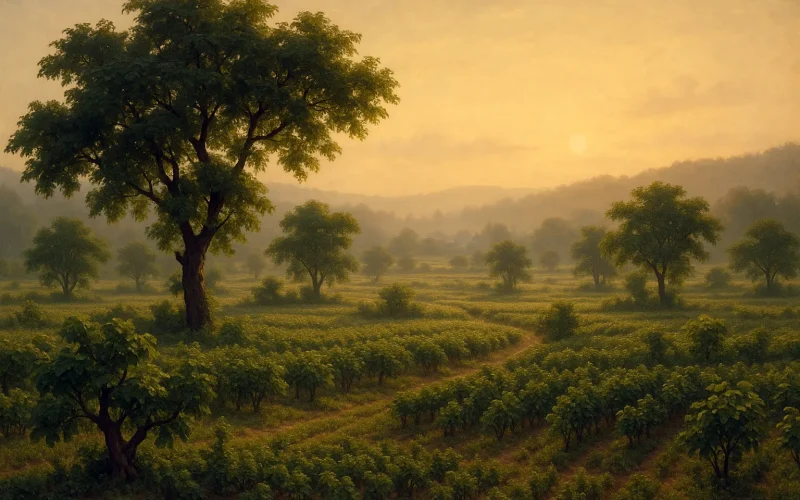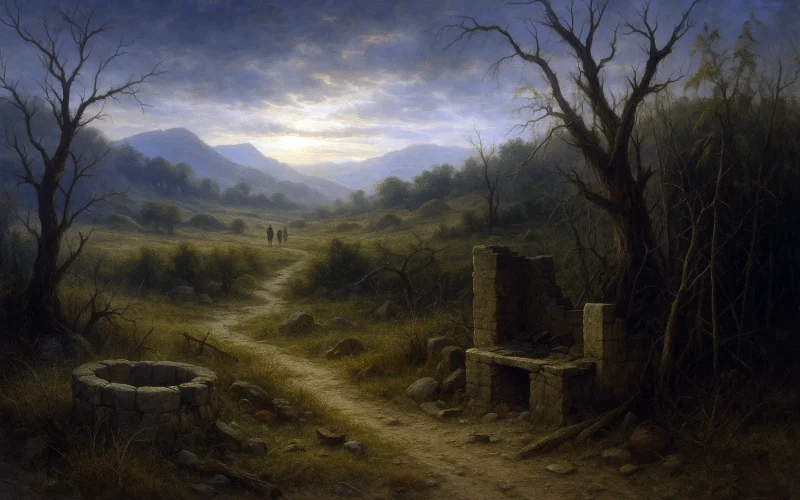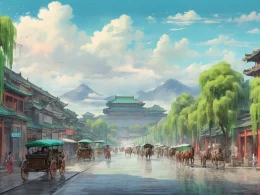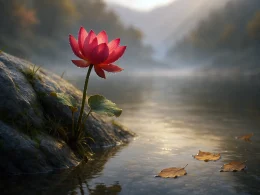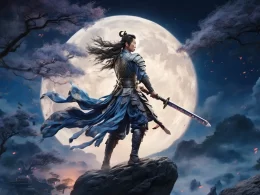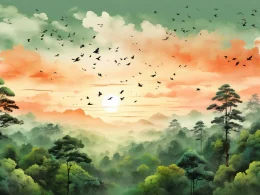I sow my beans ’neath Southern Hill,
Bean shoots are lost where weeds o’er grow.
I weed at dawn though early still;
I plod home with my moonlit hoe.
The path is narrow, grasses tall,
With evening dew my clothes wet.
To which I pay no heed at all,
If my desire can but be met.
Original Poem
「归园田居 · 其三」
陶渊明
种豆南山下,草盛豆苗稀。
晨兴理荒秽,带月荷锄归。
道狭草木长,夕露沾我衣。
衣沾不足惜,但使愿无违。
Interpretation
Composed around 405 CE, this poem is the third in Tao Yuanming's five-part "Returning to Dwell in Gardens and Fields" series. While the first two poems reflect on the tranquility and philosophical insights of reclusion, this work focuses on the tangible details of farm labor, using the hardships of fieldwork to illuminate the poet's inner contentment. With unadorned language and unpretentious honesty, the verses reveal profound personal strength and spiritual depth. Through authentic depictions of agricultural life, Tao expresses his unwavering commitment to "remaining true to his original aspiration," demonstrating his embrace of simplicity and rejection of worldly vanity.
First Couplet: "种豆南山下,草盛豆苗稀。"
Zhǒng dòu nán shān xià, cǎo shèng dòu miáo xī.
Planting beans beneath South Mountain, weeds flourish while bean sprouts stay sparse.
The opening presents agricultural reality without romanticization. Tao faces farming setbacks openly, showing no shame in failure but rather a mindset that confronts reality and accepts humble circumstances.
Second Couplet: "晨兴理荒秽,带月荷锄归。"
Chén xīng lǐ huāng huì, dài yuè hè chú guī.
At dawn I rise to clear wild thickets; moonlight sees me shouldering my hoe home.
This couplet captures the toil and perseverance of farm life. The poet's daily rhythm—working from sunrise to moonrise—embodies both the diligence of agrarian labor and the self-sufficient spirit idealized in Chinese farming culture.
Third Couplet: "道狭草木长,夕露沾我衣。"
Dào xiá cǎo mù zhǎng, xī lù zhān wǒ yī.
Narrow paths through overgrown grass; evening dew soaks my robe.
Rather than avoiding discomfort, Tao finds solace in labor's physicality. This vivid detail adds texture to his reclusive life—hardship met with unshaken composure.
Fourth Couplet: "衣沾不足惜,但使愿无违。"
Yī zhān bù zú xī, dàn shǐ yuàn wú wéi.
A drenched robe matters little—if only my resolve stays true.
The climactic line distills the poem's essence: enduring rural hardships is worthwhile so long as it honors his original vow of reclusion. This declaration reflects both his steadfast principles and the depth of his inner world.
Holistic Appreciation
The poem presents an unvarnished portrayal of the poet's farming life through simple yet profoundly expressive language. While describing the hardships of rural existence, the recurring theme of "remaining true to his original aspiration" elevates the verses into a meditation on moral integrity. Content in his modest circumstances and firm in his convictions, the poet demonstrates how rejecting compromise with a corrupt officialdom can forge a character both unassuming and extraordinary. Though the diction appears plain, its significance extends far beyond the agricultural context.
Artistic Merits
The poem employs straightforward language that directly conveys both failure ("sparse bean sprouts") and toil ("drenched robe") without complaint. Each carefully chosen detail—from weeding at daybreak to dew-soaked garments—communicates acceptance of nature's rhythms and satisfaction with life's simple patterns. The concluding line ("if only my resolve stays true") perfectly encapsulates Tao's philosophy of reclusion, serving as an enduring representation of finding contentment through adherence to personal principles.
Insights
Through his personal example, Tao teaches us that neither failure nor hardship should be feared or avoided. His message remains clear: when guided by unwavering conviction, even struggle contains meaning. More than merely depicting rural life, this poem articulates a philosophy of choice—the pursuit of inner peace over external validation. In today's rapidly changing world, such clarity of purpose retains remarkable relevance.
Poem translator
Xu Yuanchong (许渊冲)
About the poet

Tao Yuanming(陶渊明), 365 – 427 CE, was a poet, literary figure, fu writer, and essayist active during the late Eastern Jin and early Liu Song dynasties. Born in Chaisang (near present-day Jiujiang, Jiangxi Province), he pioneered a new genre of pastoral-themed literature, expressing profound philosophical insights through simple language. His poetic style became an enduring aesthetic standard in classical Chinese poetry.






